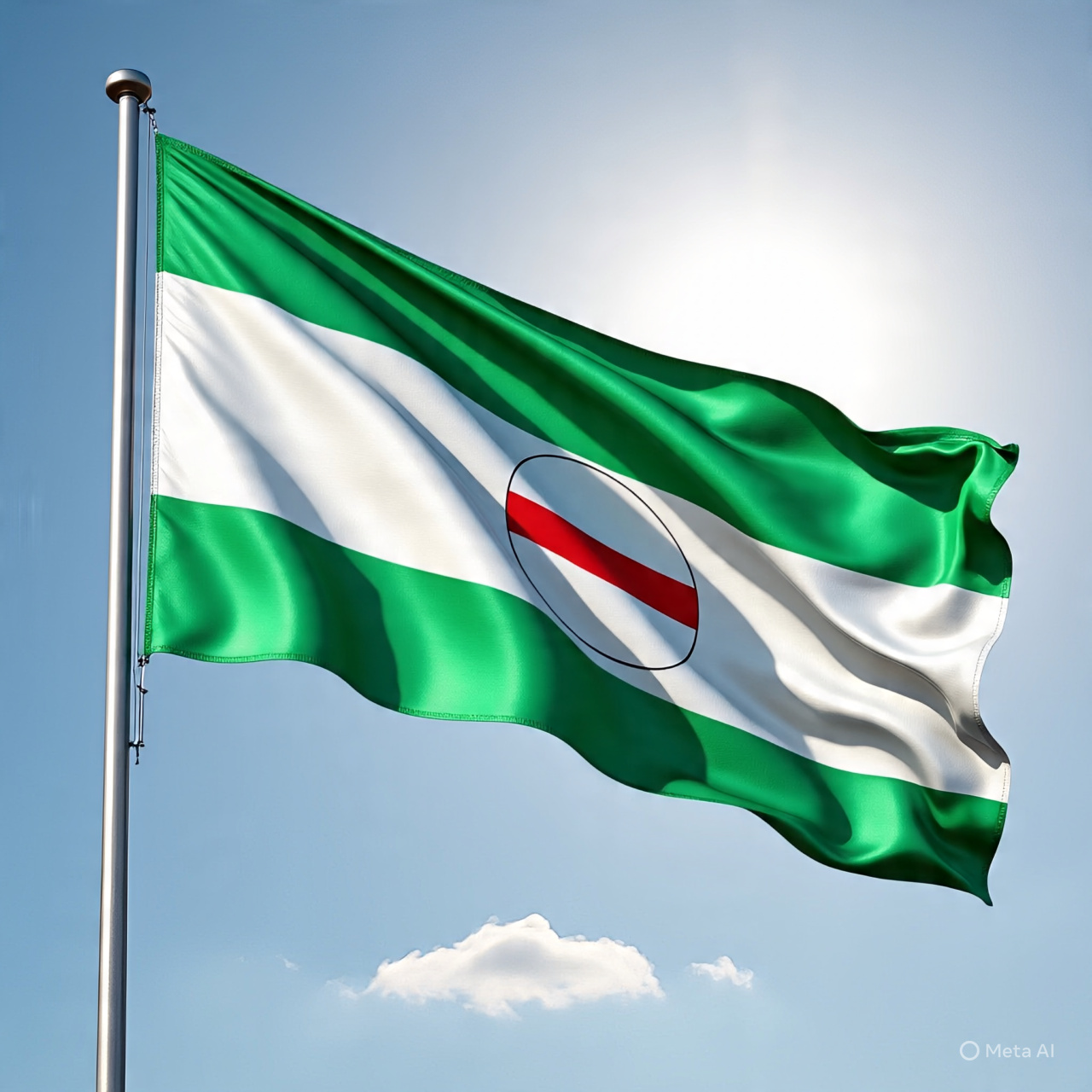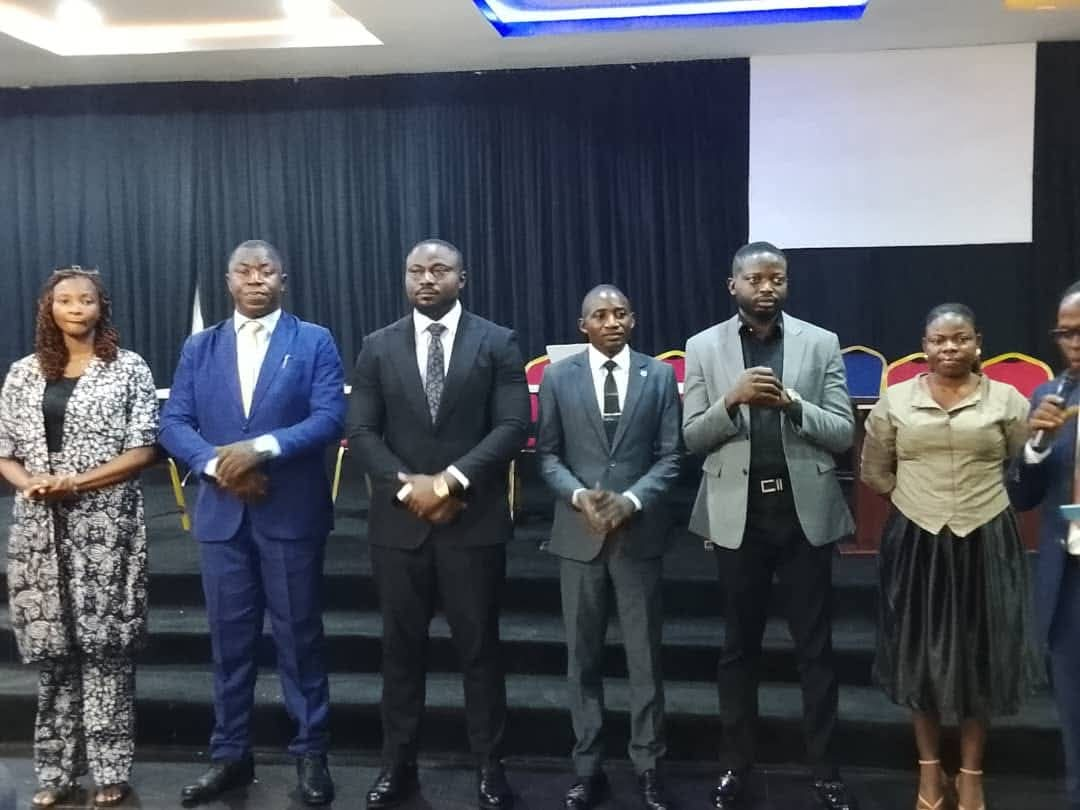By Rt. Hon. John Gaul Lebo and W. Ernest Etim-Bassey
Overview
This article serves as a call to the Attorney General of the Federation and Minister of Justice to address the status quo surrounding Cross River States (CRS) legal dispute with Akwa Ibom State leading to her loss of 76 oil wells, and her subsequent delisting as an oil producing state by the federal Government based on her maritime boundary and littoral status.
Broad in its scope yet direct in its context and outlook, it is broken into interrelated matters, which have the burning question of jurisdiction or the lack of it as its overarching theme. Firstly, because our policymakers fumbled their way to accepting the Intemational Court of Justice’s (ICJ) jurisdiction over the matter, despite the basic fact that Cameroon was not a signatory to its Charter at the time it approached the ICJ. Secondly, and most importantly, because the Supreme Court of Nigeria should not have adjudicated on the CRS’ maritime boundary or littoral status, if we are to believe that the ICJ’s mixed commission has yet to submit its report on the matter.
Respectful of the Greentree Agreement whose multiplier effect is at the core of the commercial, political and economic challenges confronting CRS since Nigeria subjected itself to the ICJs jurisdiction at the time in reference by its free will, we must however point out the historical behavior of states that were in similar situations to Nigeria in matters similar to the dispute over the ownership of the Bakassi peninsula,
And if realpolitik and 2500 years of strategic history teach us that reputations in the international arena are earned and salvaged by being able to handle the vagaries of the geopolitical terrain and its accompanying travails. One in that instance ought to realize that the international system is more sinister and intrigue-filled than we care to readily admit. Considering that international legal judgments carry more weight on the paper they are usually printed on, because they lack an enforcement mechanism.
Not to make this an academic exercise since some argue that CRS must bear with courage, the consequences, and the conditions it now finds itself in while trying to upturn the 2nd SCN judgment, which is at the Centre of the controversy. Regardless of where the truth lies, our focus must remain on the fact that CRS is bleeding commercially and economically because the SCN judgments have left CRS between the devil and the deep blue sea.
That is why it is pertinent to signpost Obono-Obla’s moot point made during a February 2022 interview that “Cross River State suffered two significant losses in 2004 and 2010, the frame of reference for 2010, of course, surrounds the Greentree Agreement and its multiplier effect, which heavily impacts CRS. Obono-Obla’s moot point indeed reflects the innate sentiments of all Crossriverians, considering many of them now view our Bakassi-related setbacks and suffering.
as a case of schadenfreude, citing factual inconsistencies and legal misrepresentations which subsequently contributed to the 2012 Supreme Court judgment (Suit No. SC. 27/2010). Indeed, the inconvenient truth about Obono-Obla’s 2022 interview suggests that something overrides the normal sympathetic response our situation should elicit, considering the circumstances around the case.
Flawed Foundations and the Supreme Court Judgments:
The truth remains that the Supreme Court’s 2012 judgment (Suit No. SC. 27/2010), which allocated the 76 oil wells in Western Bakassi to Akwa Ibom State, was based on a misinterpretation of the ICJ ruling and flawed NBC maps, wrongly deeming CRS non-littoral. In reality, the NBC ought to have waited for the physical tracing of the 1913 Treaty map from Lake Chad to Bakassi, since the Bakassi beacon is No. 64 down to the mouth of the Cross River.
In this error, NBC maps took out Cross River State from the litoral coastal map and gave the coastal maritime domain to Akwa Ibom in Mbo, leading to Cameroon now extending its maritime boundary from Cross River State to Mbo in Akwa Ibom since the Supreme Court and NBC are saying so. This, in essence, is proving problematic because it overlooked UNCLOS Article 7 and a 2002 Nigerian Navy hydrological survey affirming CRS’s maritime access. Indeed recent CNMC findings with clear terms confirm that 55 wells lie within CRS’s territory (70% complete as of January 2025), providing new evidence for review to support our case for a reversal of the first judgment based on misrepresentation, based on new evidence, per incuriam, and miscarriage of justice (Stanbic IBTC Bank Plc v. L.G.C Ltd (2020).
Unbundling the Legal Framework: UNCLOS and Nigeria’s Maritime Jurisdiction
Nigeria’s maritime jurisdiction as defined by UNCLOS includes a territorial sea of 12 nautical miles (22.2 km), a contiguous zone of 24 nautical miles (44.4 km), an Exclusive Economic Zone (EEZ) of 200 nautical miles (370.4 km), alongside a Continental Shelf potentially extending to 350 nautical miles (648.2 km).
In 2024, the United Nations (UN) approved an extended Continental Shelf, adding 16,300 km² more to enhance resource rights beyond 200 nautical miles without altering the territorial sea or EEZ; invariably, CRS’s coastal domain is integral to this framework. Consistently, UNCLOS Article 7: by recognizing estuarine systems as valid coastal access points, UNCLOS affirms CRS’s littoral status, enabling it to claim derivation revenue under Section 162(2) of the 1999 Constitution for resources within Nigeria’s EEZ and Continental Shelf.
By these adjustments, Westem Bakassi gains significance as an unceded Nigerian territory. Inherently Western, Bakassi hosts critical maritime assets, including the 76 oil wells, which were taken away from Cross River. Meaning that recognizing CRS’s jurisdiction aligns with UNCLOS and ensures equitable resource allocation. Vicariously, the 2024 Continental Shelf extension.
Furthermore, the Gulf of Guinea in the CRS nexus has also become an important maritime domain, serving as a global hub for energy resources, trade, and geopolitical influence in West and Central Africa. In this context, and bar the ridiculous Greentree Agreement, Nigeria, with its 853-kilometer coastline, should be the comerstone of economic and regional security, but this is not the case. This inaction or lack of leadership on our part has, for example, resulted in the proliferation of piracy in the Gulf of Guinea region.
This inertia by Nigeria takes on more significance by creating a security dilemma, considering the estimated cost of piracy in the Gulf of Guinea is estimated at about US$1.925 billion annually. An amount more than Guinea-Bissau’s estimated GDP of $1.63 billion. And not far off from the Central African Republic’s estimated GDP of $2.38. Additionally, we are also unable to properly exploit the 2024 Continental Shelf extension, which unlocks vast oil, gas, and mineral resources. Neither can we properly exploit the fishery and aquaculture potential of the Calabar Estuary and Western Bakassi.
The Minor Issue of National Security:
National security should also be a pivotal consideration for the AG to address the CRS/AKS matter since the Gulf of Guinea is strategic for its resources and location in the global geopolitical arrangement, since one might even make a case that we live in an area of the world that is likely to see the most economic growth this century. Paradoxically, the maritime domain in this region is vulnerable to the proliferation of low-intensity resource-induced attacks, which are transnational in nature and mostly led by criminal gangs, Warlords, and other non-state actors, including pirates, for which we have estimated their cost.
Populated by over 300 million people from Nigeria to Ghana and Ivory Coast, and a major source of oil and cocoa and increasingly metals for world markets, the subject of maritime insecurity and piracy in the region has become quite topical and stirred great current public discourse and interest resulting from the International Maritime Bureau’s (IMB) recent report that West Africa has overtaken Somalia as the world’s piracy hot-spot.
Continuities and Discontinuities: the Gulf of Guinea in Focus.
These facts and figures are even more dispiriting when one considers that, unlike the attacks in East Africa, most of the attacks in the Gulf of Guinea occur in territorial waters while the ships. are at anchor or berthed. So if one purely focuses on the commercial losses due to insecurity with its broader implications for the state and its institutions, the prognosis becomes gloomier.
Let us now attempt to localize the security challenges and consider how an empowered CRS could ease the burden of our national maritime security since the 2024 Continental Shelf extension increases Nigeria’s offshore resource exposure.
amplifies CRS’s economic and security role, as it expands Nigeria’s resource jurisdiction in areas contiguous to CRS’s coastline.
Geography is Destiny
Our case is made stronger if we also believe the age-old strategic logic that geography is destiny for all states in the international system. Considering that Calabar, the historical epicenter of CRS, has over 200 years of maritime activity, from the era of the slave trade through the colonial period to the present. As Nigeria’s first capital before amalgamation, Calabar’s prominence was driven by its robust maritime economy, serving as an international port for ships connecting Sao Tome and Principe, Equatorial Guinea, Gabon, Cameroon, and Angola. This legacy emphasizes Calabar’s role as a maritime gateway, facilitating trade, cultural exchange, and economic growth in the Gulf of Guinea.
Historically consistent and always vigorously argued without pursuing a deterministic vision or over-ambition since CRS’s coastal maritime domain preserves this heritage, our policy makers must once again reflect on Mahan’s authoritative words in his 1890 judgment that “both travel and traffic by water have always been easier and cheaper than by land.” In truth, nothing about Mahan’s words has changed or will change in significance. Therefore, positioning Calabar as a catalyst for modern economic development through port operations, shipping, and tourism is imperative.
From Geography to Commerce: The Importance of CRS’s Coastal Domain to Nigeria
Regardless of what the bottom line is, there is substantial evidence that CRS’s coastal maritime domain, inclusive of Western Bakassi and the Calabar Estuary, is a geostrategic asset to Nigeria. Consider that our coastal extent before the 2002 International Court of Justice (ICJ) ruling ceding southem Bakassi to Cameroon, CRS’s oceanic coastal distance spanned 187 kilometers. Post-ICJ. Leaving CRS with a coastal distance of 30-50 kilometers, covering Western Bakassi and the Calabar Estuary. Additionally, the Bakassi Peninsula, stretching 137-157 kilometers from the eastem Calabar Estuary to the Rio del Rey Estuary and under Nigerian control, with Western Bakassi firmly within CRS’s jurisdiction.
In geographical terms, the Calabar Estuary, formed by the Calabar River, Cross River, and Great Qua River, provides direct access to the Atlantic Ocean, supporting vibrant port activities and affirming CRS’s littoral status under Article 7 of the 1994 United Nations Convention on the Law of the Sea (UNCLOS). Undeniably deserving of more investment by the federal government, the Port of Calabar can play a bigger role in international trade by servicing ships across the Gulf of Guinea while driving economic growth in CRS and Nigeria in the areas of fisheries and offshore oil and gas exploration.
Why We Should Not Toy With Trade and the Gulf of Guinea Nexus.
In this context let us start by considering that the security vulnerabilities in the water-ways and sea-lanes would be better managed working with Government House Calabar since the Calabar Estuary and Western Bakassi provide critical vantage points for monitoring maritime traffic or as a launch base for constabulary or interdiction actions considering a shared history of mutual respect and collaboration with the Nigerian Navy. Additionally, Western Bakassi’s proximity to Cameroon makes CRS a frontline for securing Nigeria’s eastern maritime boundary, necessitating the urgent need to affirm CRS’s jurisdiction. In essence, our point is that failure to recognize CRS’s coastal status risks undermining these benefits, limiting Nigeria’s ability to secure its eastem maritime frontier. And we haven’t even expanded our scope into the regional security context, which would enable Nigeria to exert geopolitical influence, bolstering its influence in regional maritime governance.
Where do we go from here, considering that past Attorney Generals of the Federation (AGF) adopted a hawkish stance towards the issue of Bakassi, yet without a plan to address the CRS travesty? This is what riled Obono-Obla into a clarion call for anarchy or equity, which whipped up sentiments amongst Cross Riverians.
Conclusion:
It has become an imperative for the AGF to make a pronouncement on the Akwa Ibom-CRS matter to soothe nerves or douse rising sentiments because Cross Riverians feel hard done by on all fronts, considering the gap in resources between AKS and CRS, which leaves us wondering why “they’re trying to remove the small food from our mouth. That is perhaps why the AGF needs to address the thomy issue of how the SCN judgment 2 could stand seeing it sat on judgment 1, which purely addressed, for lack of a better word, a land matter.
Rt. Hon. John Gaul Lebo is an attorney and former legislator who served as Speaker of the 8th Cross River State House of Assembly. W. Ernest Etim-Bassey is a former external faculty member of the Pearson Canadian Peacekeeping Training Center as well as a former SSA, State Security, to the Governor of Cross River State. Currently, he’s an adjunct at the department of political science, University of Calabar
Abuja August 5th, 2025





